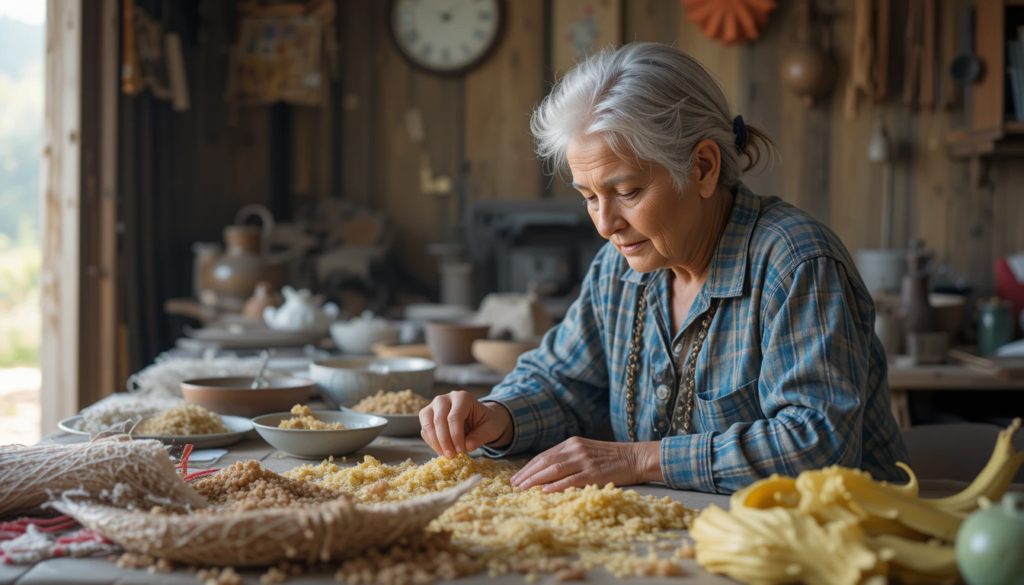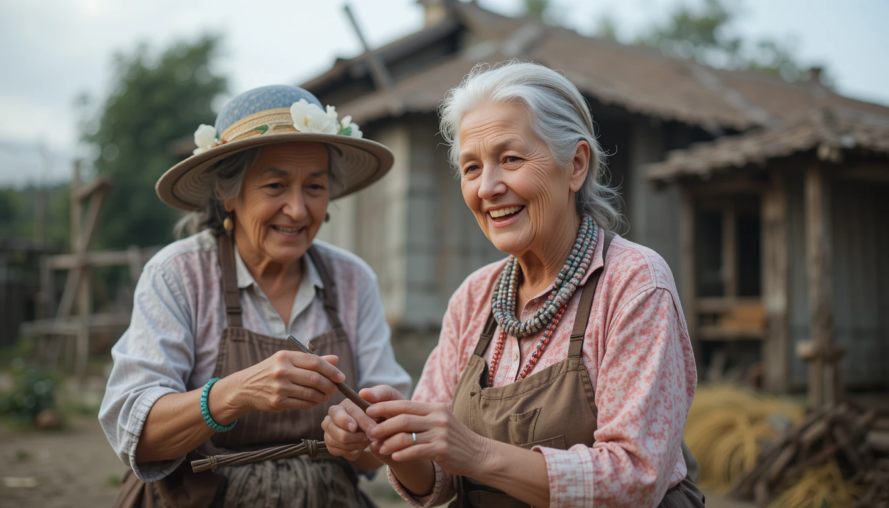As women age, the invisible labor they carry, which has often gone unnoticed throughout their lives, continues to compound. Now in their later years, older women find that the expectations and responsibilities placed upon them have not only persisted but, in some ways, increased. For many, this ongoing invisible labor is more demanding than ever, yet the recognition and appreciation they deserve remain as elusive as ever.
In the home, older women may have seen their children grow and become independent, but the responsibilities of caregiving don’t stop there. Many women take on the role of caregivers for aging spouses, elderly parents, or even grandchildren. This multi-generational caregiving can be emotionally, physically, and financially draining, yet it often goes unacknowledged. Society still seems to believe that older women are simply “supposed” to be there for their families, expected to provide the same emotional labor they’ve always given without question. The invisible nature of this labor leaves these women feeling as though their own needs and desires are secondary if acknowledged at all.
Even as women age, the societal expectation that they perform emotional labor without complaint persists. They are the emotional anchors in families, offering support during times of hardship and celebration, tending to the emotional needs of others while silently neglecting their own. The idea of “being the strong one” is romanticized, yet it often leads to isolation, loneliness, and, eventually, burnout. The selflessness expected of older women, especially in their caregiving roles, makes it even more difficult for them to voice their needs or ask for support.
The challenge is amplified in the workplace. Older women often find themselves pushed to the margins, sidelined for leadership positions or promotions due to ageist perceptions. The idea that older women are no longer capable of bringing fresh ideas or taking on demanding roles persists, even as they possess a wealth of experience and wisdom. The emotional labor they have provided in their families often spills into the workplace, where they may be seen as the “caretaker” of the office environment. Yet, their skills and contributions are often overshadowed by the younger, more “dynamic” workforce.
As women enter their older years, the issues of ageism and gender bias come into play more sharply. The perception that older women are “past their prime” only deepens the sense of invisibility. Society’s obsession with youth and beauty renders older women largely unseen, forcing them to grapple with the notion that they are no longer valued in the same ways they once were. The double burden of gender and age discrimination often leaves them feeling discarded, both in their professional and personal lives. It’s a bitter realization that the qualities they once took pride in nurturing, caregiving, and dedication are now either overlooked or undervalued.
This stage of life, where women transition into older age, also brings the inevitable confrontation with mortality. The physical changes that accompany aging slower metabolism, aches, wrinkles, and the subtle yet unmistakable signs of time can serve as constant reminders of their own vulnerability. Yet, even in the face of their physical decline, the demand for invisible labor persists. Older women are expected to maintain their roles as caregivers and emotional supporters, even as their energy wanes. This creates a constant internal struggle between the body’s limitations and the external expectation to continue as before.
However, there is an undeniable shift that occurs for many older women as they begin to wrestle with their identity in later life. For some, this period becomes an opportunity for reinvention a time to rediscover aspects of themselves that may have been neglected for decades. With their children grown, their careers winding down, or in some cases, long years of caregiving coming to an end, many older women seize this moment to explore forgotten passions, embrace new hobbies, or begin new careers. The transition can be daunting, as many feel they’ve already sacrificed so much of themselves, but it can also be incredibly empowering.

Older women may look back on their life choices with mixed emotions. The passing of time often leads to reflections on dreams left unfulfilled, missed opportunities, or paths not taken. But this can also ignite a sense of freedom a realization that, with age, there is less fear of judgment or societal expectations. The second half of life can offer the chance to prioritize personal happiness and self-discovery in ways that were impossible during the earlier years. Many women embrace this phase as an opportunity to reconnect with their core selves, to reclaim their passions and sense of purpose.
For some, this reinvention takes the form of activism, as older women fight for the recognition and rights they have long been denied. They use their voices to speak out on issues like gender equality, healthcare, and the needs of senior citizens. With decades of experience under their belts, they bring a unique and invaluable perspective, yet often ignored. But as they become more vocal, older women find a sense of agency that empowers them to reclaim their place in the world, both in their communities and in society at large.
Another critical challenge that comes with aging is the necessity of redefining relationships. As spouses or partners pass away, or as health declines, older women often find themselves navigating new forms of loneliness or grief. But rather than retreating into isolation, many older women use this time to form new connections. They reconnect with old friends, join social groups, or even form new communities centered around shared interests. The focus shifts from caregiving to connection, from invisible labor to self-care, and from self-sacrifice to self-expression.
Ultimately, while the invisible labor and identity struggles may never fully disappear, they evolve into a new understanding of the self for many older women. The process of confronting ageism, reclaiming self-worth, and redefining identity becomes not only an act of survival but one of liberation. It is a time of embracing change, accepting imperfection, and rediscovering the joy of self-care and self-empowerment. For older women, this can be a time of profound growth, where they find strength in their experiences, resilience in their challenges, and fulfillment in redefining what it means to live fully, regardless of age.
For more similar stories subscribe to foramz.com


Leave a Reply